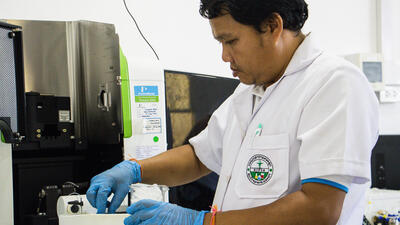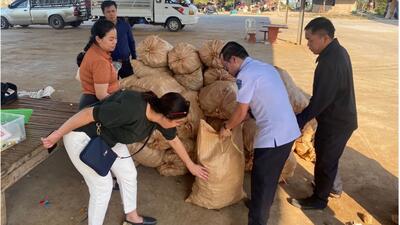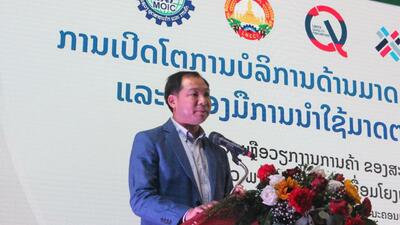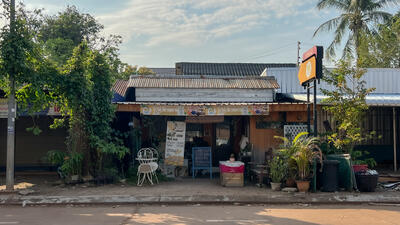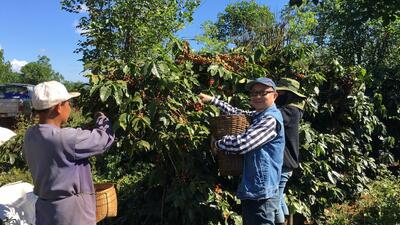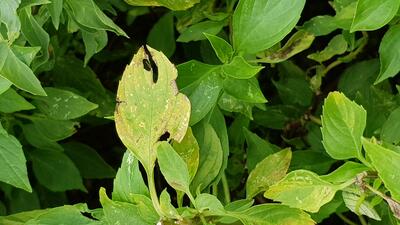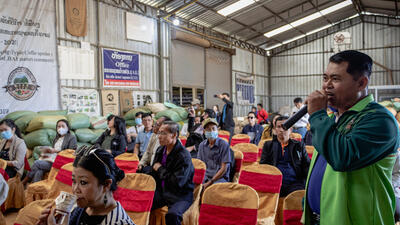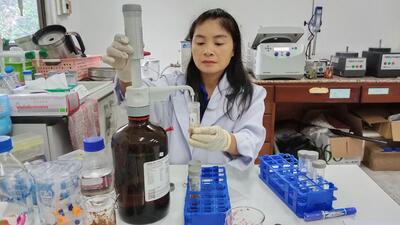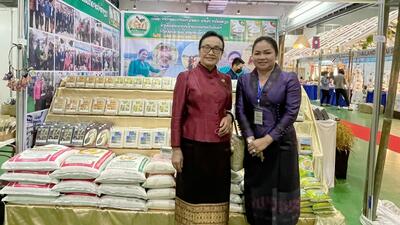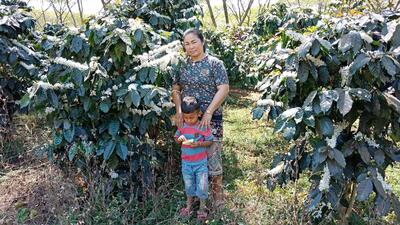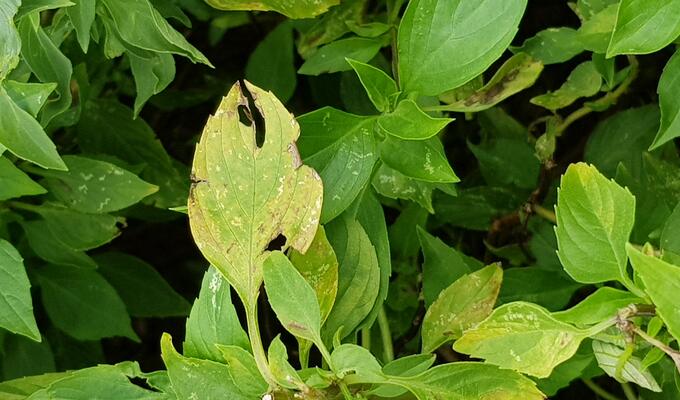

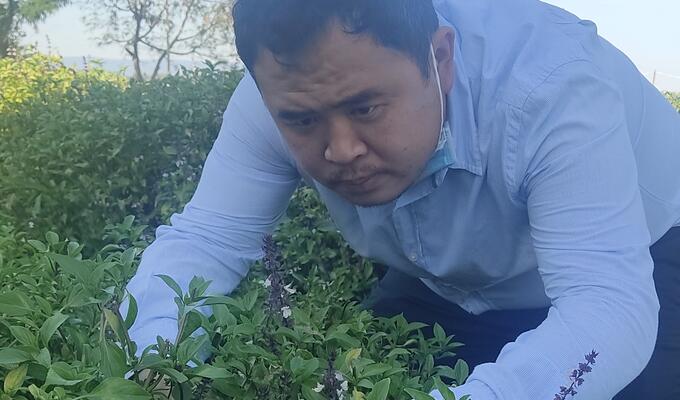
Replacing chemical pesticides in Lao PDR with natural alternatives
ITC project funded by EU teaches Laotian chili and basil farmers how to eliminate pests safely
Farming and agriculture are major contributors to the Lao economy. In Champasak Province, farmers have been farming basil and chili for decades, earning stable incomes and supporting their households.
However, earlier this year, farmers in Champasak face troublesome pest and insect problems resulting in decreased yields and incomes. A common way to manage pests and insects for farmers in this area is to spray their farm with plant protection products or pesticides. Studies show that most farmers believe that the application of pesticides is necessary for increasing yields.
“Based on our last field visit to targeted districts Phonthong and Soukoumma, findings show that commonly found pests in basil and chili are fruit flies, bacterial wilt, whiteflies, Ocimum leaf folder on sweet basil and Anthracnose (fungal disease) on chili,” says Luangxay Phanthasith, Officer at Champasak Provincial Agriculture and Forestry Office.
Using pesticides can cause long-term severe negative effects on human health, the environment and can be a barrier to trade. Therefore, many countries including the European Union have set rules and regulations to ban the use of pesticides that contain hazardous chemical substances.
The widespread use of pesticides was the main topic discussed at the International Trade Centre’s 5th Technical Working Group meeting under its Systematic Mechanism for Safer Trade (SYMST) project in Vangvieng in December 2022.
The meeting brought together national and international experts, as well as stakeholders from the three provinces to review the project’s progress. The meeting also provided a platform for agricultural officers like Phanthasith, to discuss challenges, share lessons learned and propose solutions to help farmers.
Training as multiplier effect
As a lead agricultural officer, the daily work routine of Officer Phanthasith is to inform farmers on plant health and the safe use of pesticides. Besides his full-time job at Champasak Provincial Agriculture and Forestry Office, he also serves as a coordinator for the SYMST project in Champasak Province, joining the project’s field visits to help experts collect information on the cultivation and use of pesticides for chili and basil.
Moreover, the expert attended a series of trainings and workshops covering topics on plant health, pesticide residue monitoring implementation and regulations on plant export to the EU as part of the SYMST project.
“I want to help farmers understand safe techniques to cultivate, choose and use natural pesticides for their crops,” Phanthasith says.
Not only was he able to share his work with other provincial and district-level officers at the meeting but he also learned about best practices and challenges faced in other targeted provinces of the SYMST project, including Vientiane Capital and Luang Namtha.
About the project
The Systematic Mechanism for Safer Trade (SYMST) project is funded by the European Union and strengthens the regulatory framework for control of plant health and pesticides in the fruit and vegetable sectors and other plant products. The ITC project develops a systematic approach to assist the governments and private sector in two target countries, Lao PDR and Viet Nam.





